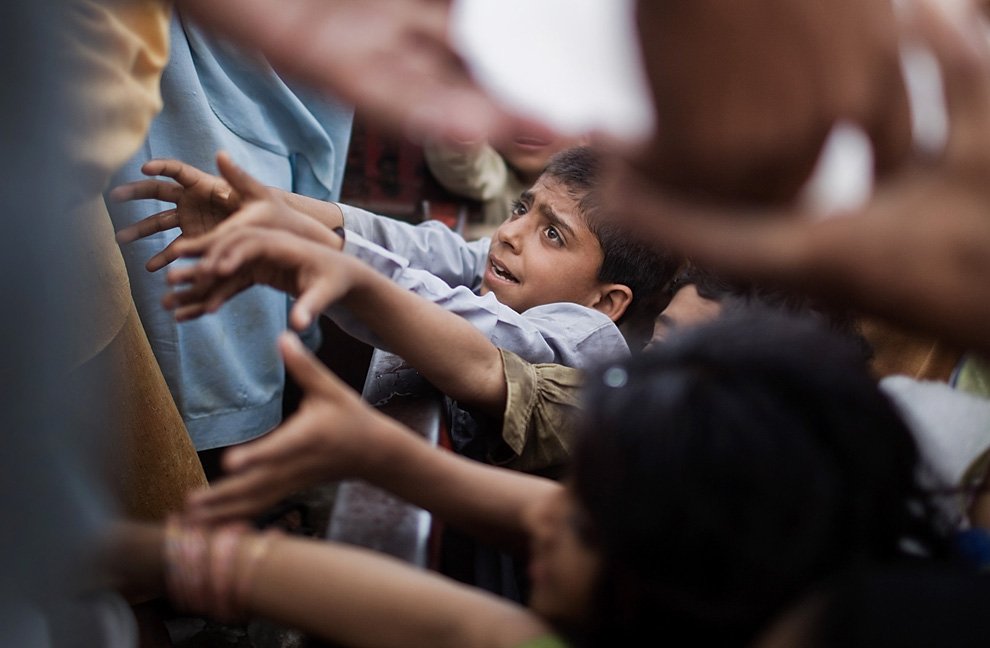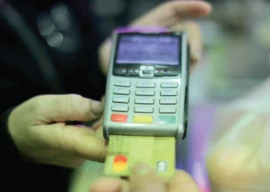
Aftab Khan, 46, has been selling mobile phone accessories near a bus stand in Rawalpindi for almost a decade. Originally from Pakistan's northwest Swabi district, Khan said he makes Rs1,000 to Rs1,200 a day and sends most of the earnings back to his family in Swabi.
“I would hardly make ends meet with this amount, but the outbreak of Covid-19 in the country last year has made the situation even worse as I could not earn enough money to support my family,” he said.
Under such circumstances, Khan said he had been struggling to afford quality food for himself but thanks to the recently launched hunger-free initiative, he can now have freshly-cooked and free-of-charge food.
“I used to spend around 300 rupees on food per day, but now I am getting free meals from food trucks roaming in the city. I feel elated that by the end of this month I would be able to send back more money,” he said.
The government has recently kicked off a “no one goes to sleep hungry” initiative under the Ehsaas programme, a major poverty alleviation initiative of the incumbent government benefiting millions of poor across the country.
The needy individuals will be able to feed themselves twice a day at various points such as near hospitals, bus stations and public places, Special Assistant to the Prime Minister of Pakistan on Poverty Alleviation Sania Nishtar said the programme has initially been started in the twin cities, but it would be scaled up to other areas of the country soon.
Private donors would also be able to contribute towards the poor-centric programme, and the government has set up a donor coordination group within the Poverty Alleviation and Social Safety Division of Pakistan to engage with the benefactors to make it more financially stable, Nishtar told Xinhua.
Lauding the all-out efforts made by the government for the most vulnerable and marginalised sections of the society, Talat Anwar, former adviser on macroeconomic policy at the Ministry of Planning, Development and Special Initiatives, said that the programme is in line with the global model for reducing poverty.
Bashir Farooqui, the chairman of the Saylani Welfare Trust said that providing shelter and food has greatly lessened the burden of the poor but he also stressed the government should take a leap forward to make their lives even better by imparting education and technical skills so they can make their own way in the society.
Published in The Express Tribune, March 24th, 2021.




1731570357-0/elon-musk-(1)1731570357-0-165x106.webp)
-(1)1717678110-0/Kendrick-(1)-(1)1717678110-0-165x106.webp)












COMMENTS
Comments are moderated and generally will be posted if they are on-topic and not abusive.
For more information, please see our Comments FAQ